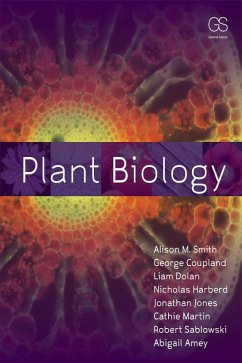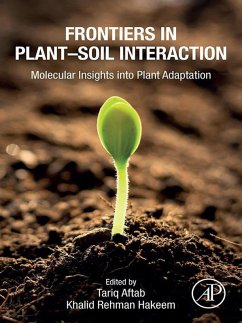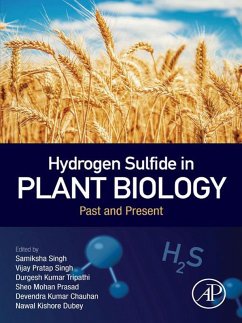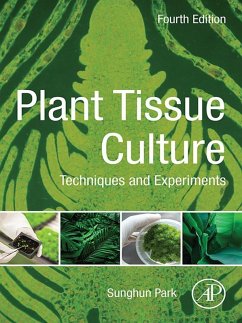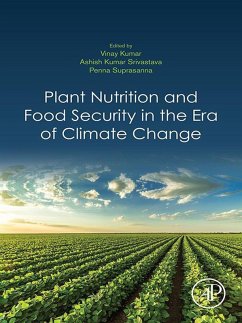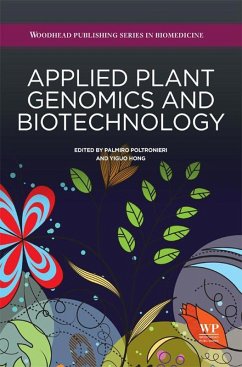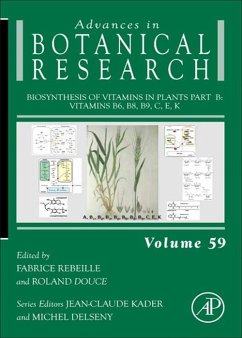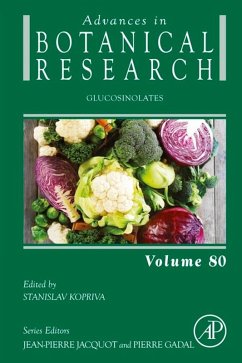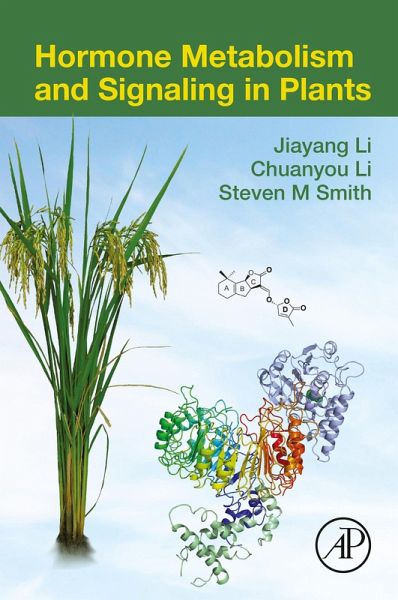
Hormone Metabolism and Signaling in Plants (eBook, ePUB)
Versandkostenfrei!
Sofort per Download lieferbar
67,95 €
inkl. MwSt.
Weitere Ausgaben:

PAYBACK Punkte
34 °P sammeln!
Plant Hormones: Biosynthesis and Mechanisms of Action is based on research funded by the Chinese government's National Natural Science Foundation of China (NSFC). This book brings a fresh understanding of hormone biology, particularly molecular mechanisms driving plant hormone actions. With growing understanding of hormone biology comes new outlooks on how mankind values and utilizes the built-in potential of plants for improvement of crops in an environmentally friendly and sustainable manner. This book is a comprehensive description of all major plant hormones: how they are synthesized and c...
Plant Hormones: Biosynthesis and Mechanisms of Action is based on research funded by the Chinese government's National Natural Science Foundation of China (NSFC). This book brings a fresh understanding of hormone biology, particularly molecular mechanisms driving plant hormone actions. With growing understanding of hormone biology comes new outlooks on how mankind values and utilizes the built-in potential of plants for improvement of crops in an environmentally friendly and sustainable manner. This book is a comprehensive description of all major plant hormones: how they are synthesized and catabolized; how they are perceived by plant cells; how they trigger signal transduction; how they regulate gene expression; how they regulate plant growth, development and defense responses; and how we measure plant hormones. This is an exciting time for researchers interested in plant hormones. Plants rely on a diverse set of small molecule hormones to regulate every aspect of their biological processes including development, growth, and adaptation. Since the discovery of the first plant hormone auxin, hormones have always been the frontiers of plant biology. Although the physiological functions of most plant hormones have been studied for decades, the last 15 to 20 years have seen a dramatic progress in our understanding of the molecular mechanisms of hormone actions. The publication of the whole genome sequences of the model systems of Arabidopsis and rice, together with the advent of multidisciplinary approaches has opened the door to successful experimentation on plant hormone actions. - Offers a comprehensive description of all major plant hormones including the recently discovered strigolactones and several peptide hormones - Contains a chapter describing how plant hormones regulate stem cells - Offers a fresh understanding of hormone biology, particularly molecular mechanisms driving plant hormone actions - Discusses the built-in potential of plants for improvement of crops in an environmentally friendly and sustainable manner
Dieser Download kann aus rechtlichen Gründen nur mit Rechnungsadresse in A, B, BG, CY, CZ, D, DK, EW, E, FIN, F, GR, HR, H, IRL, I, LT, L, LR, M, NL, PL, P, R, S, SLO, SK ausgeliefert werden.




